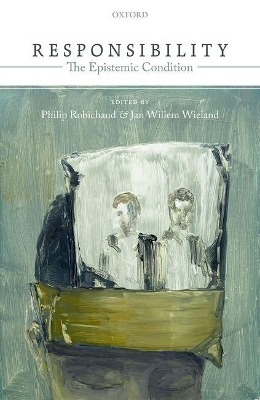
Responsibility: The Epistemic Condition
Oxford University Press (Verlag)
978-0-19-877966-7 (ISBN)
Philosophers have long agreed that moral responsibility might not only have a freedom condition, but also an epistemic condition. Moral responsibility and knowledge interact, but the question is exactly how. Ignorance might constitute an excuse, but the question is exactly when. Surprisingly enough, the epistemic condition has only recently attracted the attention of scholars. This volume sets the agenda. Sixteen new essays address the following central questions: Does the epistemic condition require akrasia? Why does blameless ignorance excuse? Does moral ignorance sustained by one's culture excuse? Does the epistemic condition involve knowledge of the wrongness or wrongmaking features of one's action? Is the epistemic condition an independent condition, or is it derivative from one's quality of will or intentions? Is the epistemic condition sensitive to degrees of difficulty? Are there different kinds of moral responsibility and thus multiple epistemic conditions? Is the epistemic condition revisionary? What is the basic structure of the epistemic condition?
Philip Robichaud received his PhD from Rice University in 2012 for a dissertation on the epistemic condition. From 2013-2016 he was a postdoc on the 'Enhancing Responsibility' project at Delft University of Technology, before taking up a tenure track position at Vrije Universiteit Amsterdam. His current research project entitled 'Nudging Responsibly: The impact of choice architecture on responsibility attributions' is funded by the Netherlands Organization for Scientific Research. Jan Willem Wieland is a postdoc in the philosophy department at Vrije Universiteit Amsterdam. His interests lie between ethics and epistemology, and his current research centers on the epistemic condition. Previously, he wrote a dissertation on infinite regress arguments in philosophy, and he has long-term ambitions to promote analytical skills to the broader public. For his research, he received substantive grants from the Netherlands Organization for Scientific Research and the Research Foundation Flanders.
Jan Willem Wieland: Introduction: The Epistemic Condition
1: William J. FitzPatrick: Unwitting Wrongdoing, Reasonable Expectations, and Blameworthiness
2: Matthew Talbert: Akrasia, Awareness, and Blameworthiness
3: Maria Alvarez and Clayton Littlejohn: When Ignorance is No Excuse
4: Elinor Mason and Alan T. Wilson: Vice, Blameworthiness, and Cultural Ignorance
5: George Sher: Blame and Moral Ignorance
6: Elizabeth Harman: When Is Failure to Realize Something Exculpatory?
7: Paulina Sliwa: On Knowing What's Right and Being Responsible For It
8: Gunnar Björnsson: Explaining (Away) the Epistemic Condition of Moral Responsibility
9: Peter A. Graham: The Epistemic Condition on Moral Blameworthiness, A Theoretical Epiphenomenon
10: Gwen Bradford: Hard to Know
11: Alexander A. Guerrero: Intellectual Difficulty and Moral Responsibility
12: Michael J. Zimmerman: Moral Responsibility and Quality of Will
13: Randolph Clarke: Ignorance, Revision, and Commonsense
14: Neil Levy: Methodological Conservatism and the Epistemic Condition
15: Matt King: Tracing the Epistemic Condition
16: Jan Willem Wieland and Philip Robichaud: Blame Transfer
| Erscheinungsdatum | 30.06.2017 |
|---|---|
| Verlagsort | Oxford |
| Sprache | englisch |
| Maße | 172 x 240 mm |
| Gewicht | 622 g |
| Themenwelt | Geisteswissenschaften ► Philosophie ► Erkenntnistheorie / Wissenschaftstheorie |
| Geisteswissenschaften ► Philosophie ► Ethik | |
| ISBN-10 | 0-19-877966-6 / 0198779666 |
| ISBN-13 | 978-0-19-877966-7 / 9780198779667 |
| Zustand | Neuware |
| Haben Sie eine Frage zum Produkt? |
aus dem Bereich

![Was heißt Denken?. Vorlesung Wintersemester 1951/52. [Was bedeutet das alles?] - Martin Heidegger](/media/113619842)
